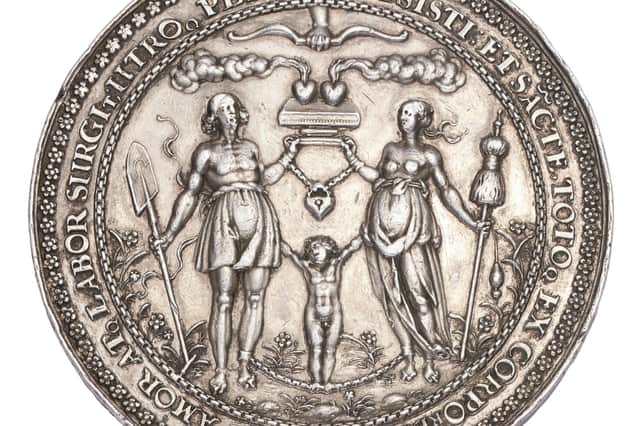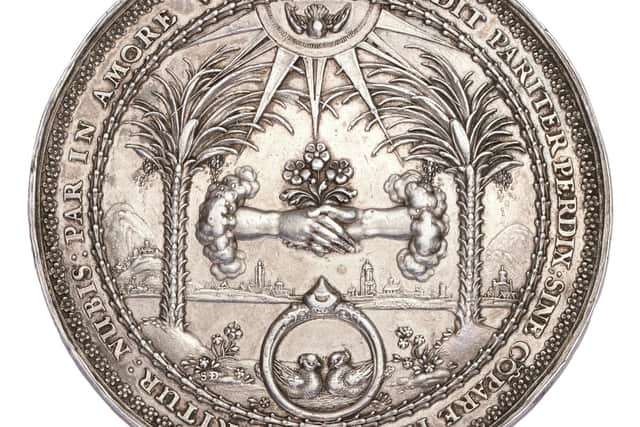Intricate love token features in Valentine's Day auction


The medal, which is in very fine condition, will be offered with an estimate of £250-350 (plus buyer’s premium).
Struck in Gdańsk, Poland around 1636 to celebrate a marriage, the face of the medal portrays a couple standing holding their flaming hearts aloft on a plinth, chained and padlocked at wrist and ankle and being drawn together by Cupid whilst standing under his bow. Around the outside a motto in Latin roughly translates to: “You have entered into marriage, united in body and soul, from now love and work begin, enjoy both”, and indeed man and wife both hold a symbol of work in the guise of a shovel and a spindle.
Advertisement
Hide AdAdvertisement
Hide AdThe symbolism continues on the reverse of the medal, this time with a motto that translates roughly to “Like a secluded partridge, a palm tree without a spouse dies. Bloom in love, married couple”. The motto surrounds a landscape with a cityscape in the distance, two palm trees (symbols of fertility), embracing hands from which flowers bloom, and a wedding ring surrounding a pair of partridge (symbols of devotion).


Whilst the couple for whom the medal would have been commission are not known, the maker, Sebastian Dadler (1586-1657), is regarded as one of the most distinguished craftsmen of his age and the finest medal maker in Germany. Born in Alsace, Dadler went on to become a highly accomplished goldsmith, medallist and etcher for numerous Imperial and Saxon courts, working in Ausburg, Dresden, Nuremberg, Berlin, Gdańsk and Hamburg. His work is characterized by highly detailed scenes full of symbolism and over 140 medals by Dadler are known, commemorating events of contemporary history as well as family events such as marriages and births. Gdansk, where this medal was produced, went on to become a centre of excellence for medal making in Europe inspired in no small part by the work of Dadler.
The 440-lot sale will also include ancient, hammered, and milled coins, both British and foreign, as well as an interesting collection of 18th-century tokens, Maundy money, and banknotes. It will be available for public viewing the day before the sale, and a fully illustrated catalogue is available at tennants.co.uk.